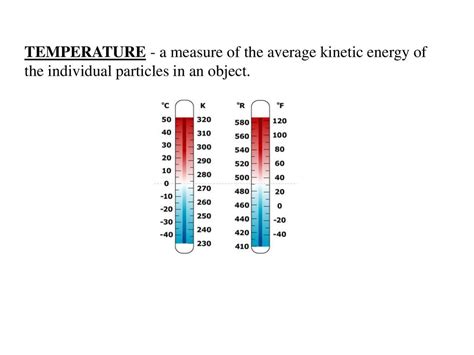The Master of Nursing (MN) degree is a graduate-level program designed to prepare advanced practice nurses for leadership roles in the healthcare industry. This degree program builds on the foundational knowledge and skills acquired during undergraduate nursing education, focusing on the development of advanced clinical, research, and leadership skills. The MN program is typically designed for individuals who have already completed a Bachelor of Science in Nursing (BSN) degree and have gained some level of experience in the field.
One of the primary goals of the Master of Nursing program is to equip students with the knowledge, skills, and competencies necessary to assume advanced practice roles such as nurse practitioners, nurse educators, nurse administrators, and nurse researchers. The curriculum is carefully crafted to include both theoretical and practical components, ensuring that graduates are well-prepared to address the complex healthcare needs of diverse populations. The program's emphasis on evidence-based practice, cultural competence, and healthcare policy enables students to develop a nuanced understanding of the healthcare system and their role within it.
Key Points
- The Master of Nursing degree is a graduate-level program that prepares advanced practice nurses for leadership roles in the healthcare industry.
- The program builds on the foundational knowledge and skills acquired during undergraduate nursing education, focusing on the development of advanced clinical, research, and leadership skills.
- Graduates of the MN program are prepared to assume advanced practice roles such as nurse practitioners, nurse educators, nurse administrators, and nurse researchers.
- The curriculum includes both theoretical and practical components, with an emphasis on evidence-based practice, cultural competence, and healthcare policy.
- Students develop a nuanced understanding of the healthcare system and their role within it, enabling them to address the complex healthcare needs of diverse populations.
Curriculum and Program Structure

The Master of Nursing curriculum is designed to be comprehensive and flexible, accommodating the diverse needs and goals of students. The program typically includes a combination of core courses, specialty tracks, and elective courses. Core courses provide a foundation in advanced practice nursing, including topics such as advanced health assessment, pharmacology, and pathophysiology. Specialty tracks allow students to focus on a specific area of interest, such as pediatrics, gerontology, or mental health nursing. Elective courses provide opportunities for students to explore topics in greater depth or to pursue interests outside of their specialty track.
Specialty Tracks and Concentrations
Many Master of Nursing programs offer specialty tracks or concentrations that enable students to develop advanced knowledge and skills in a specific area of practice. These tracks may include nurse practitioner, nurse educator, nurse administrator, or nurse researcher concentrations. Each concentration is designed to prepare students for advanced practice roles in their chosen specialty, with coursework and clinical experiences tailored to meet the unique needs of each population or setting.
| Specialty Track | Description |
|---|---|
| Nurse Practitioner | Prepares students to provide primary and specialty care to patients across the lifespan. |
| Nurse Educator | Prepares students to teach nursing students in academic and clinical settings. |
| Nurse Administrator | Prepares students for leadership roles in healthcare organizations, focusing on management, policy, and finance. |
| Nurse Researcher | Prepares students to design, conduct, and disseminate research that advances nursing practice and improves patient outcomes. |

Career Opportunities and Advancement

Graduates of the Master of Nursing program are prepared for a wide range of career opportunities in advanced practice nursing. These opportunities may include roles such as nurse practitioners, nurse educators, nurse administrators, and nurse researchers. With their advanced knowledge and skills, MN graduates are well-positioned to assume leadership roles in healthcare organizations, academia, and research institutions. According to the Bureau of Labor Statistics, employment of advanced practice registered nurses (APRNs) is projected to grow 28% from 2020 to 2030, much faster than the average for all occupations.
Professional Development and Continuing Education
As healthcare professionals, Master of Nursing graduates are committed to ongoing professional development and continuing education. This commitment enables them to stay current with the latest advances in nursing practice, technology, and research. Many professional organizations, such as the American Nurses Association (ANA) and the American Association of Nurse Practitioners (AANP), offer continuing education opportunities, conferences, and workshops that support the ongoing development of advanced practice nurses.
What is the typical duration of a Master of Nursing program?
+The typical duration of a Master of Nursing program is 2-3 years, although some programs may be completed in as little as 12-18 months or as long as 4-5 years.
What are the admission requirements for a Master of Nursing program?
+Admission requirements for a Master of Nursing program typically include a Bachelor of Science in Nursing (BSN) degree, a minimum GPA, and satisfactory scores on the Graduate Record Examination (GRE) or other standardized tests.
What are the career opportunities for Master of Nursing graduates?
+Master of Nursing graduates are prepared for a wide range of career opportunities in advanced practice nursing, including roles such as nurse practitioners, nurse educators, nurse administrators, and nurse researchers.
In conclusion, the Master of Nursing program is a dynamic and flexible graduate-level program that prepares advanced practice nurses for leadership roles in the healthcare industry. With its comprehensive curriculum, specialty tracks, and elective courses, students can develop the advanced knowledge, skills, and competencies necessary to succeed in their chosen specialty. As healthcare professionals, Master of Nursing graduates are committed to ongoing professional development and continuing education, enabling them to stay current with the latest advances in nursing practice, technology, and research.



